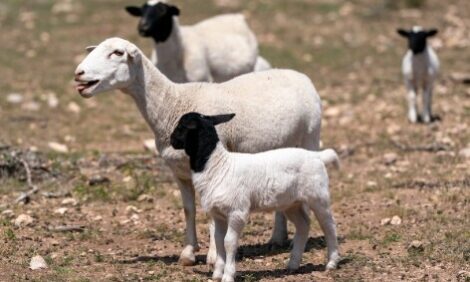



Mixed Crop-Livestock Farming A Help in Africa
According to new research, African farms with both crops and livestock could be more resilient to climate change than farms that only grow crops.The research suggests that policy makers should support farmers in making the switch to integrated farming.
The Intergovernmental Panel on Climate Change (IPCC) has indicated that agriculture in tropical under-developed countries is the most vulnerable market sector under climate change.
This has serious implications for food security. The EU is committed to integrate environmental and developmental policy with the aim of decreasing poverty and increasing sustainability in developing countries1.
Previous researches measuring the impacts of climate change on agriculture in developing countries have focused their efforts on crops.
However, there is strong evidence that livestock species are vulnerable to climate change.
This study classified African agriculture into three types: specialised crop farms, specialised livestock farms and integrated farms that own both crops and livestock. By observing the choices of agricultural systems of around 9000 African farmers in 10 countries, the paper calculated the probability of a farmer adopting each type of farming system and the net revenues of the chosen system.
The results indicated that the choice of farming systems and net revenue depended on climate.
A 1°C increase in temperature increased the probability that a farmer would choose a mixed farm and decreased the probability they would choose a specialised farm, either in crops or livestock.
The same temperature increase caused a decline in the net revenue of specialised crop farms and mixed farms, while the profit of a livestock-only farm increased.
An increase in precipitation by 1mm per month increased the probability of choosing farms with crops - either crop-only or mixed - but decreased the choice of livestock only farms.
It also increased the net revenue of the crop-only farms but decreased the profit of the mixed farms and livestock-only farms.
The results indicated that a 1°C rise increased the likelihood that farmers would choose an integrated farm.
However, other variables also influenced choice, such as electricity supply, water availability, crop and livestock prices, soil type, regional fixed effects and the country fixed effects. For example, West African farmers tend to mix crops with goats and sheep, whereas farms in Zambia had a slight preference for livestock-only farms.
The study also estimated the impacts of future climate change on farm choice and net revenue until 2060.
The results indicated that integrated farming would increase by about six per cent due to climate change.
The net revenue of specialised crop farming was predicted to fall by as much as 75 per cent whilst the profit for integrated farming would only fall by about 10 per cent.
Integrated farming should be more resilient partly because some livestock species can be raised in hot dry savannah zones, but also because diversification brings economic benefits under climate shocks.
While higher temperatures could see profits fall for specialised crop farms, higher rainfall could reduce profits for specialised livestock farms. This increases the likelihood that farmers will choose to diversify their portfolio.
The results have important implications for food security: crop-only farms could become highly vulnerable whilst integrated farming could fare better. As such, policy should help farms adapt by providing support for the switch to mixed farming. These aid programmes should consider existing policy and regional differences, as well as the reliance of African farmers on communal lands.


